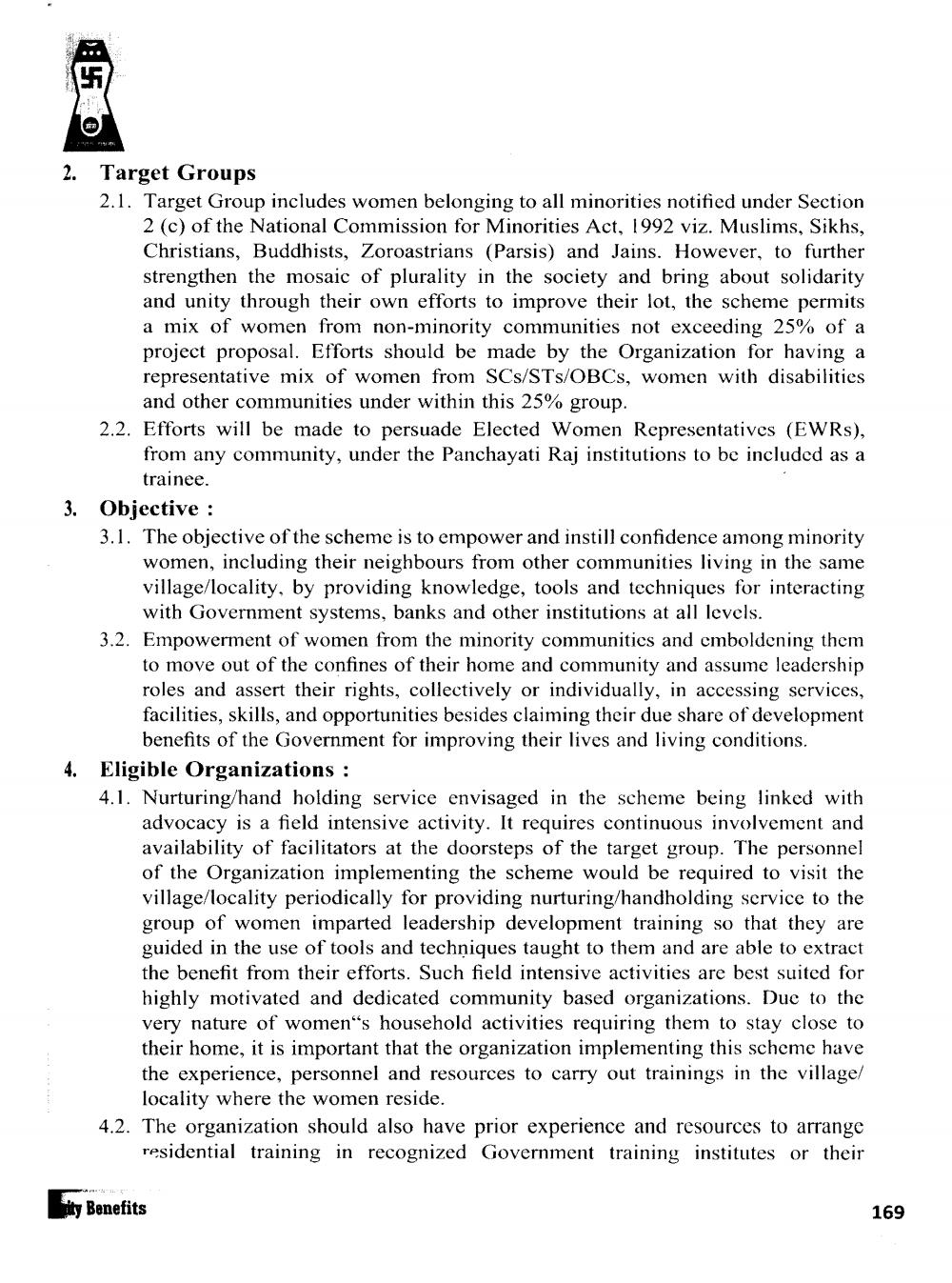________________
2. Target Groups 2.1. Target Group includes women belonging to all minorities notified under Section
2 (c) of the National Commission for Minorities Act, 1992 viz. Muslims, Sikhs, Christians, Buddhists, Zoroastrians (Parsis) and Jains. However, to further strengthen the mosaic of plurality in the society and bring about solidarity and unity through their own efforts to improve their lot, the scheme permits a mix of women from non-minority communities not exceeding 25% of a project proposal. Efforts should be made by the Organization for having a representative mix of women from SCs/STs/OBCs, women with disabilities
and other communities under within this 25% group. 2.2. Efforts will be made to persuade Elected Women Representatives (EWRs),
from any community, under the Panchayati Raj institutions to be included as a
trainee. 3. Objective : 3.1. The objective of the scheme is to empower and instill confidence among minority
women, including their neighbours from other communities living in the same village/locality, by providing knowledge, tools and techniques for interacting
with Government systems, banks and other institutions at all levels. 3.2. Empowerment of women from the minority communities and cmboldening them
to move out of the confines of their home and community and assume leadership roles and assert their rights, collectively or individually, in accessing services, facilities, skills, and opportunities besides claiming their due share of development
benefits of the Government for improving their lives and living conditions. 4. Eligible Organizations : 4.1. Nurturing/hand holding service envisaged in the scheme being linked with
advocacy is a field intensive activity. It requires continuous involvement and availability of facilitators at the doorsteps of the target group. The personnel of the Organization implementing the scheme would be required to visit the village/locality periodically for providing nurturing/handholding service to the group of women imparted leadership development training so that they are guided in the use of tools and techniques taught to them and are able to extract the benefit from their efforts. Such field intensive activities are best suited for highly motivated and dedicated community based organizations. Due to the very nature of women's household activities requiring them to stay close to their home, it is important that the organization implementing this scheme have the experience, personnel and resources to carry out trainings in the village/
locality where the women reside. 4.2. The organization should also have prior experience and resources to arrange
residential training in recognized Government training institutes or their
sity Benefits
169




